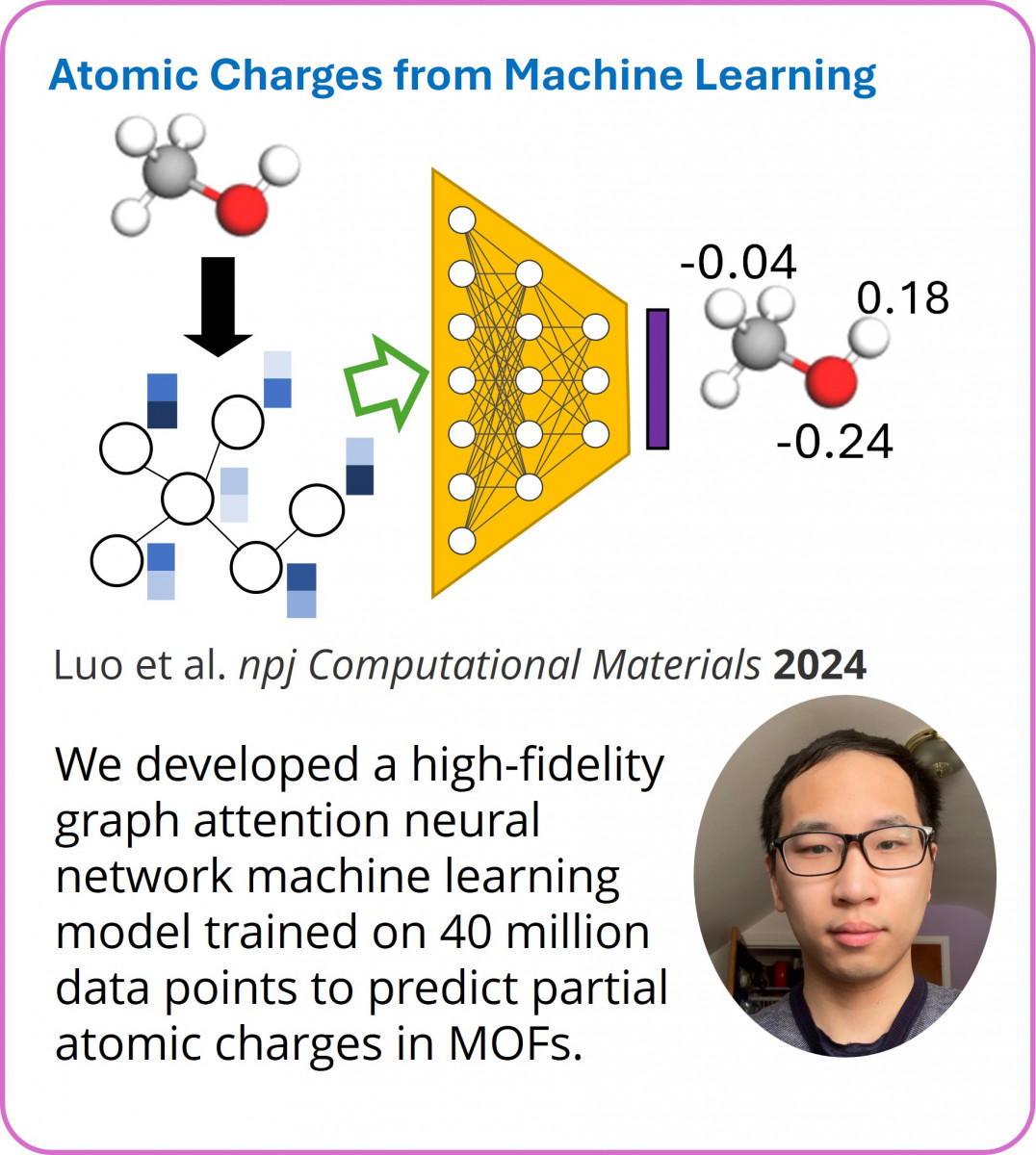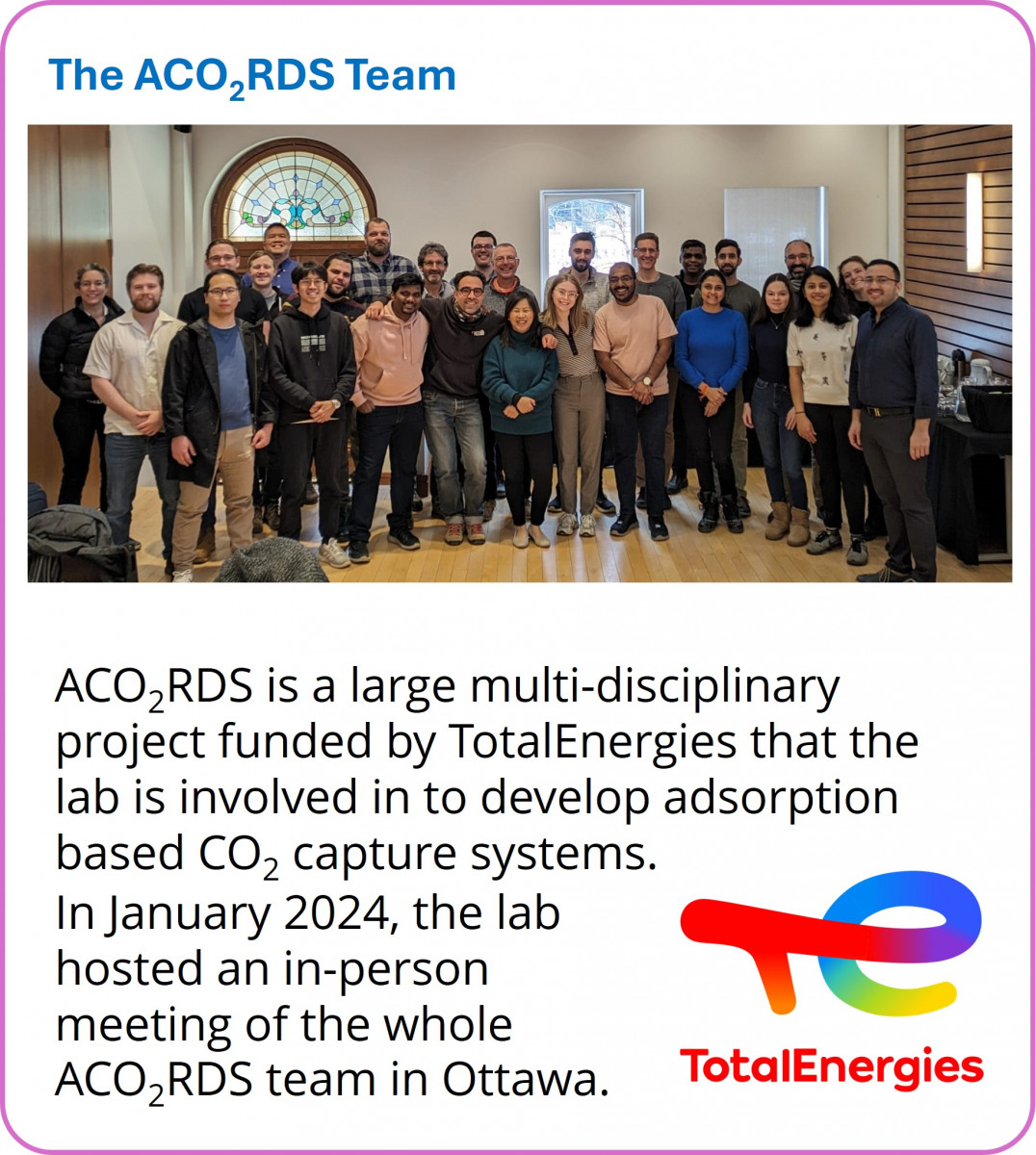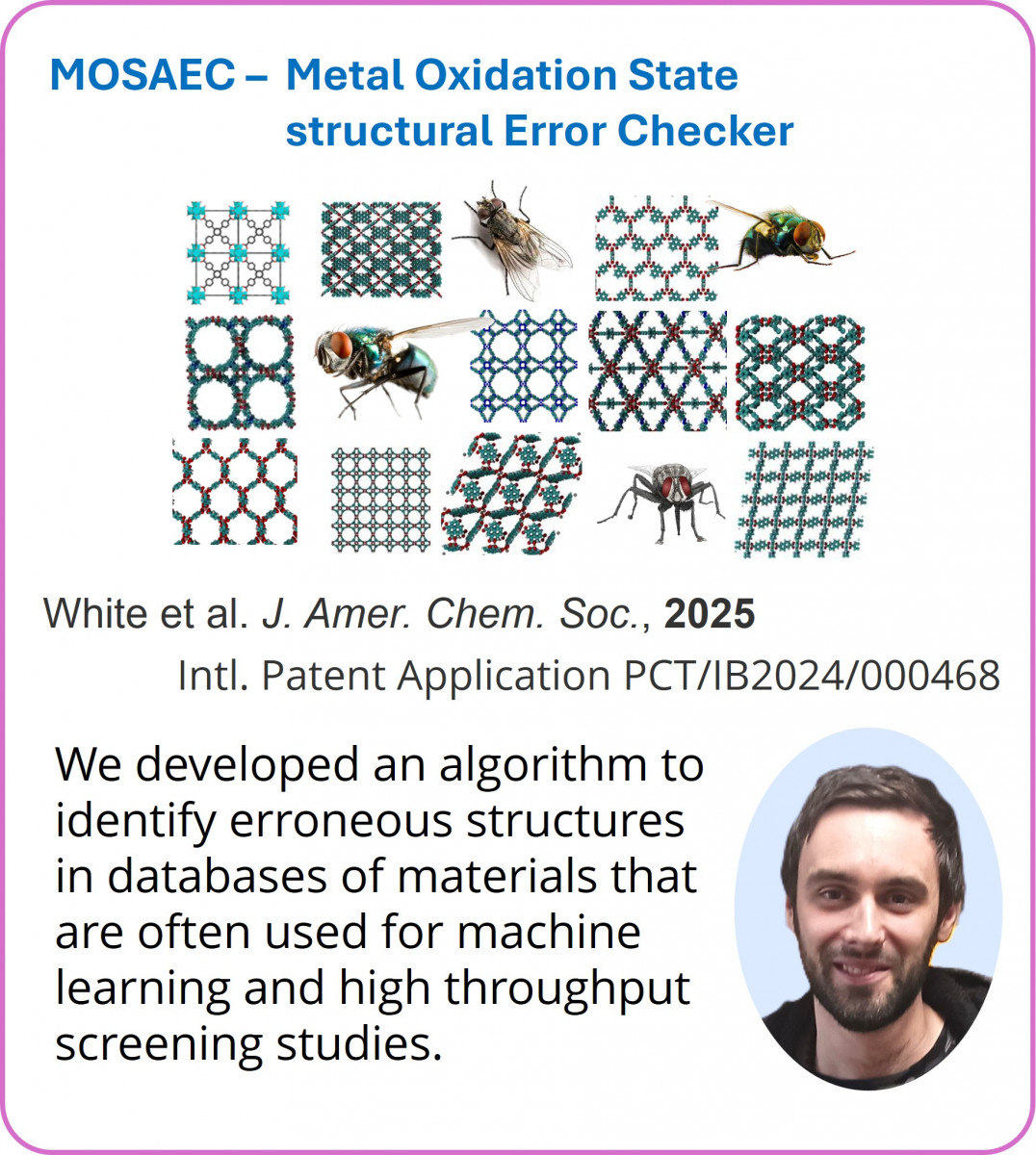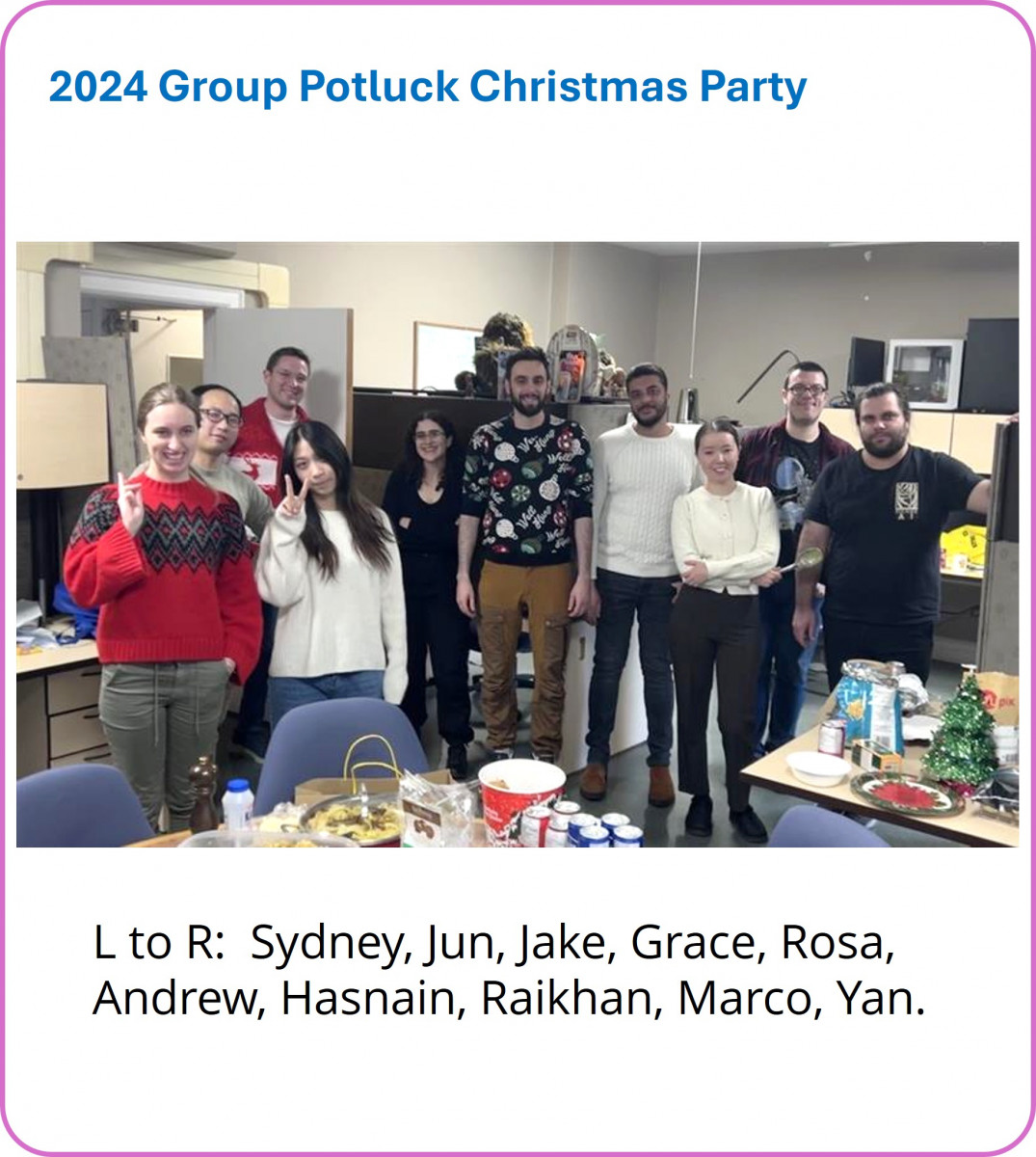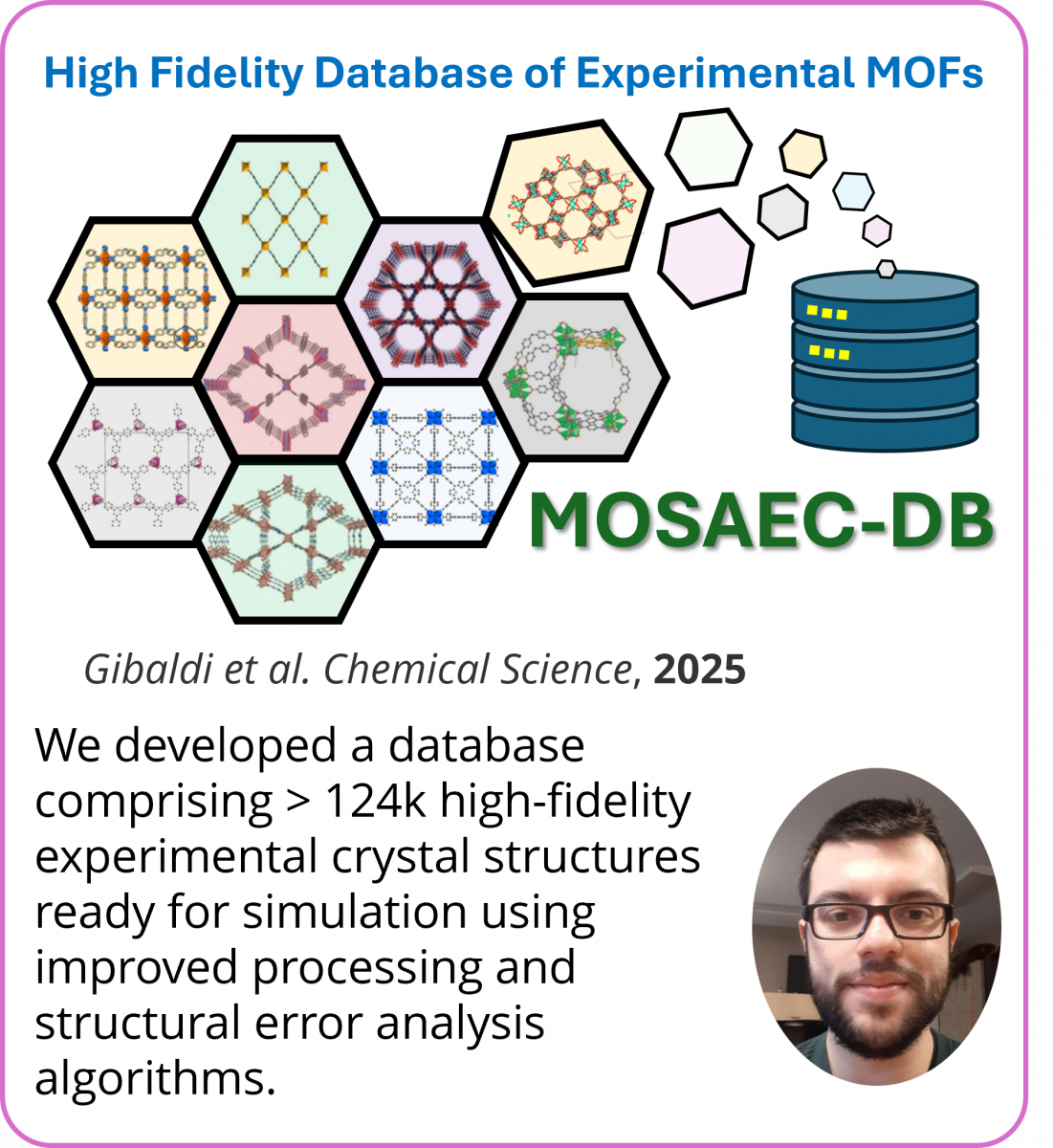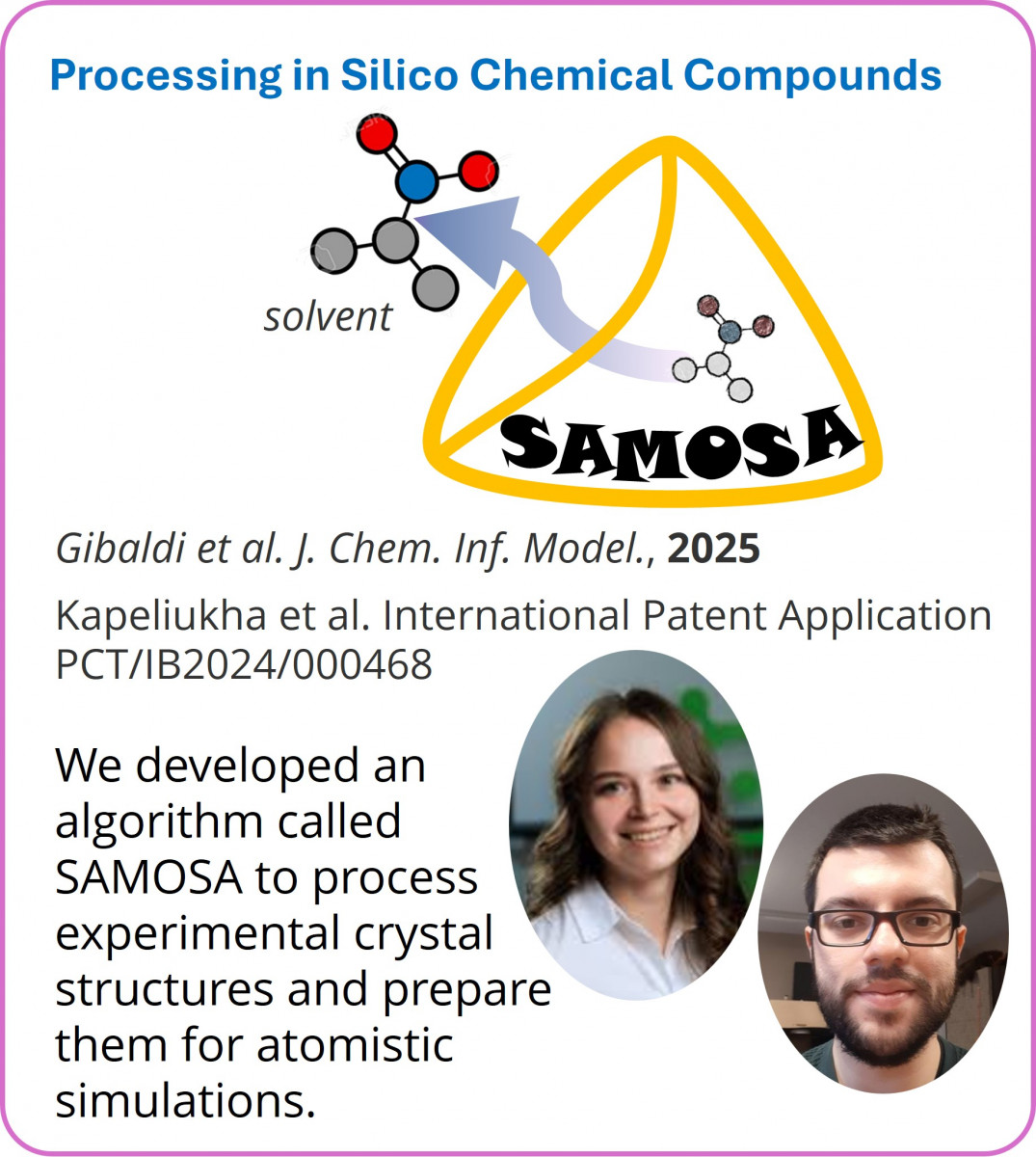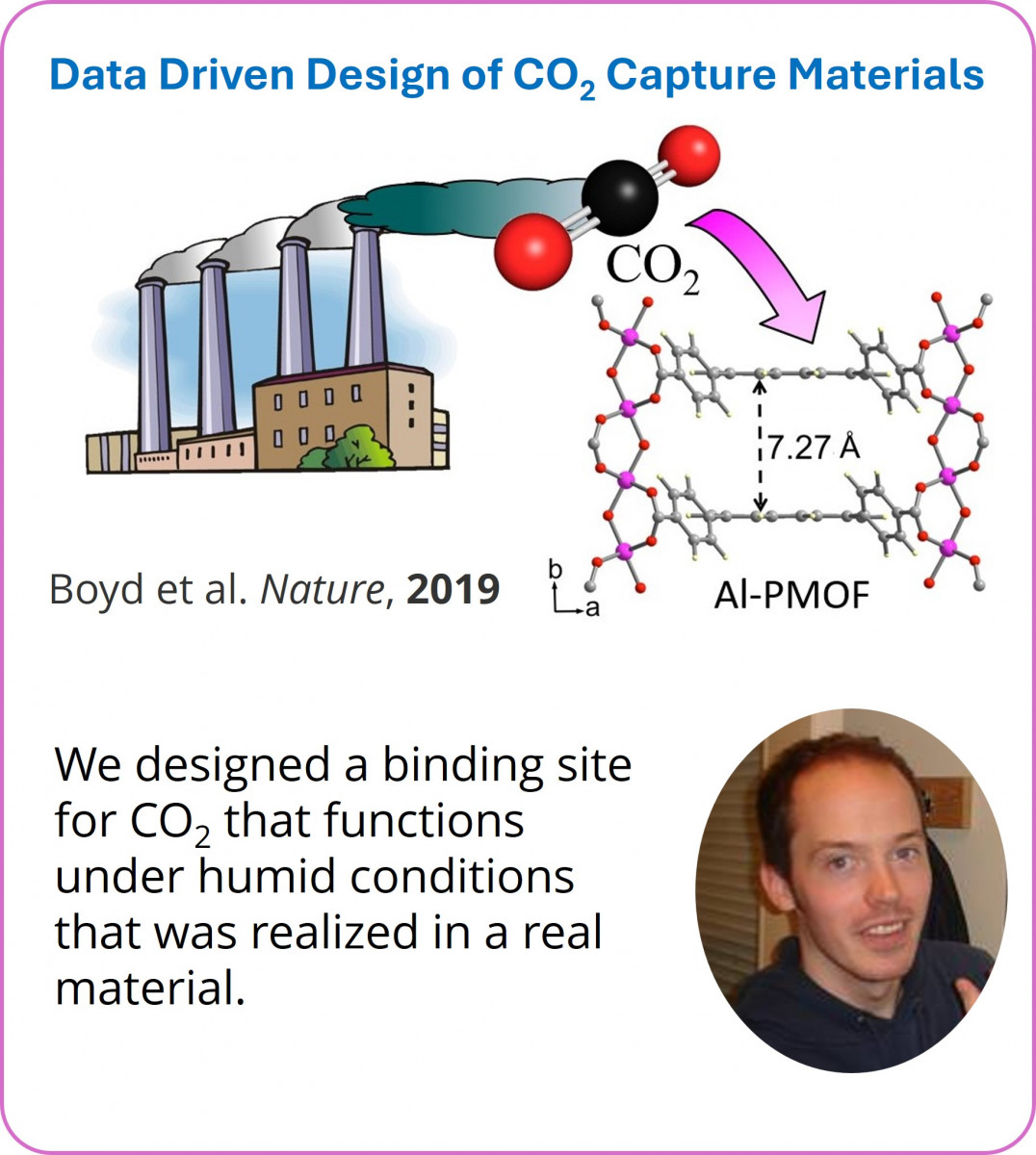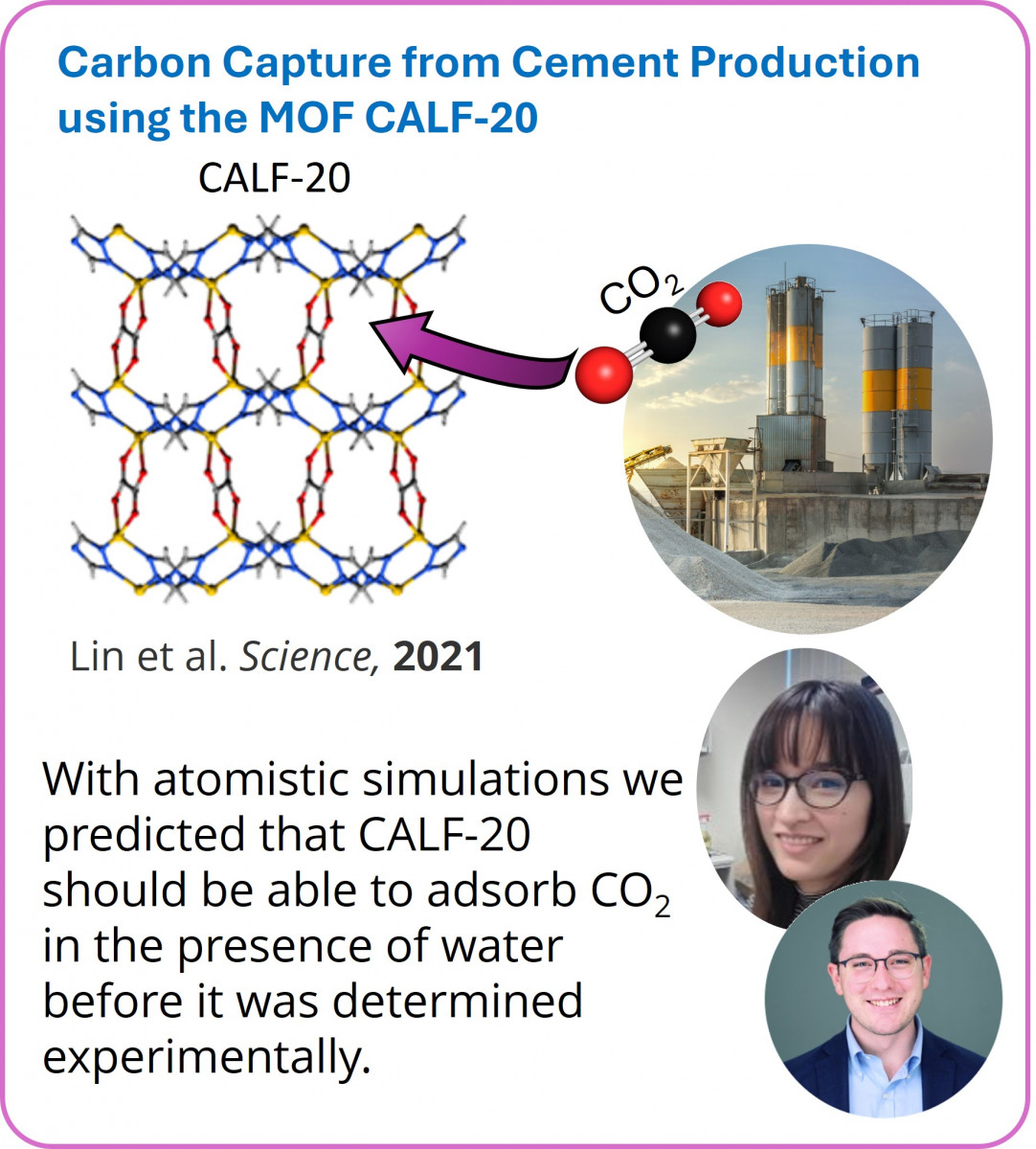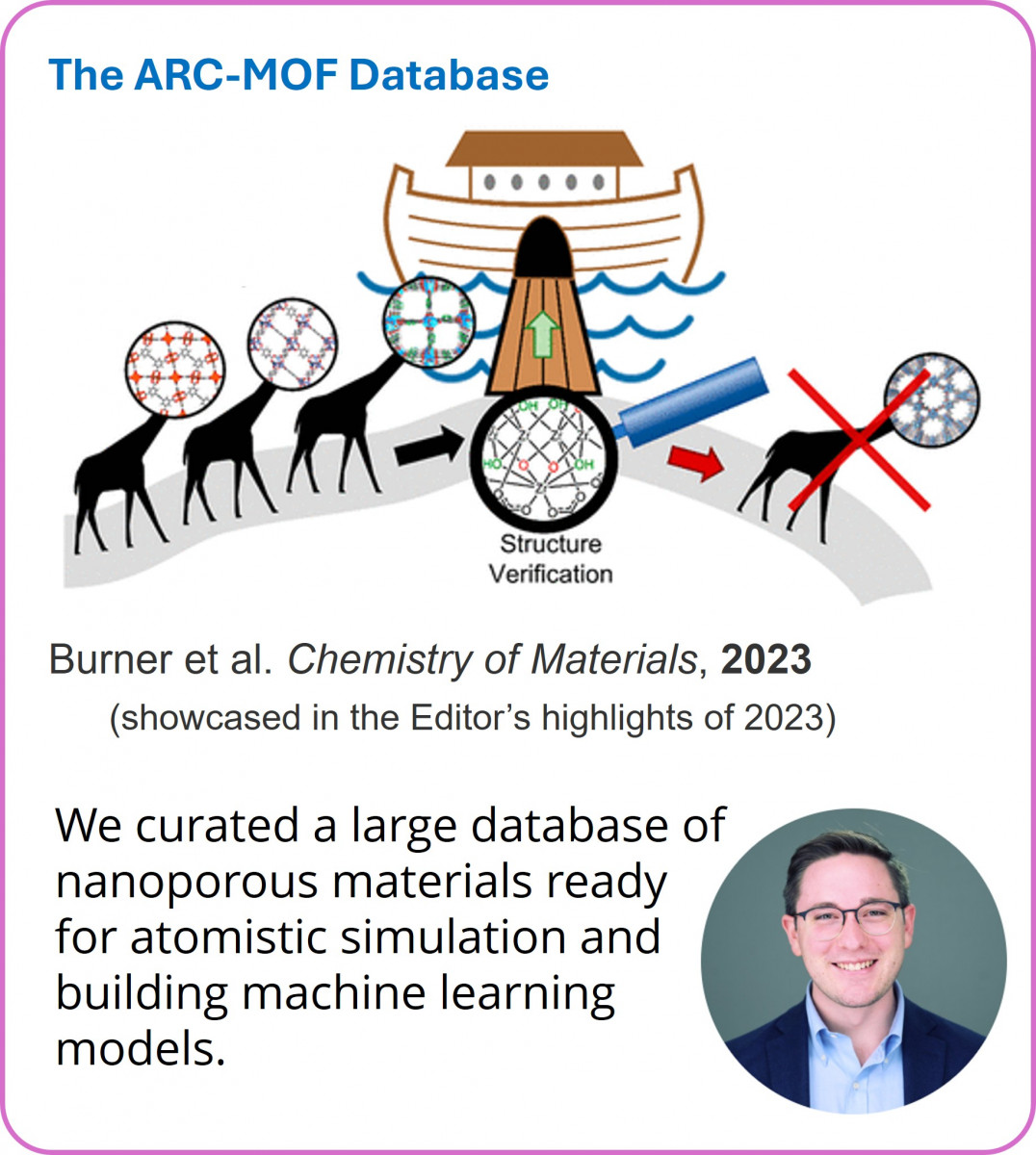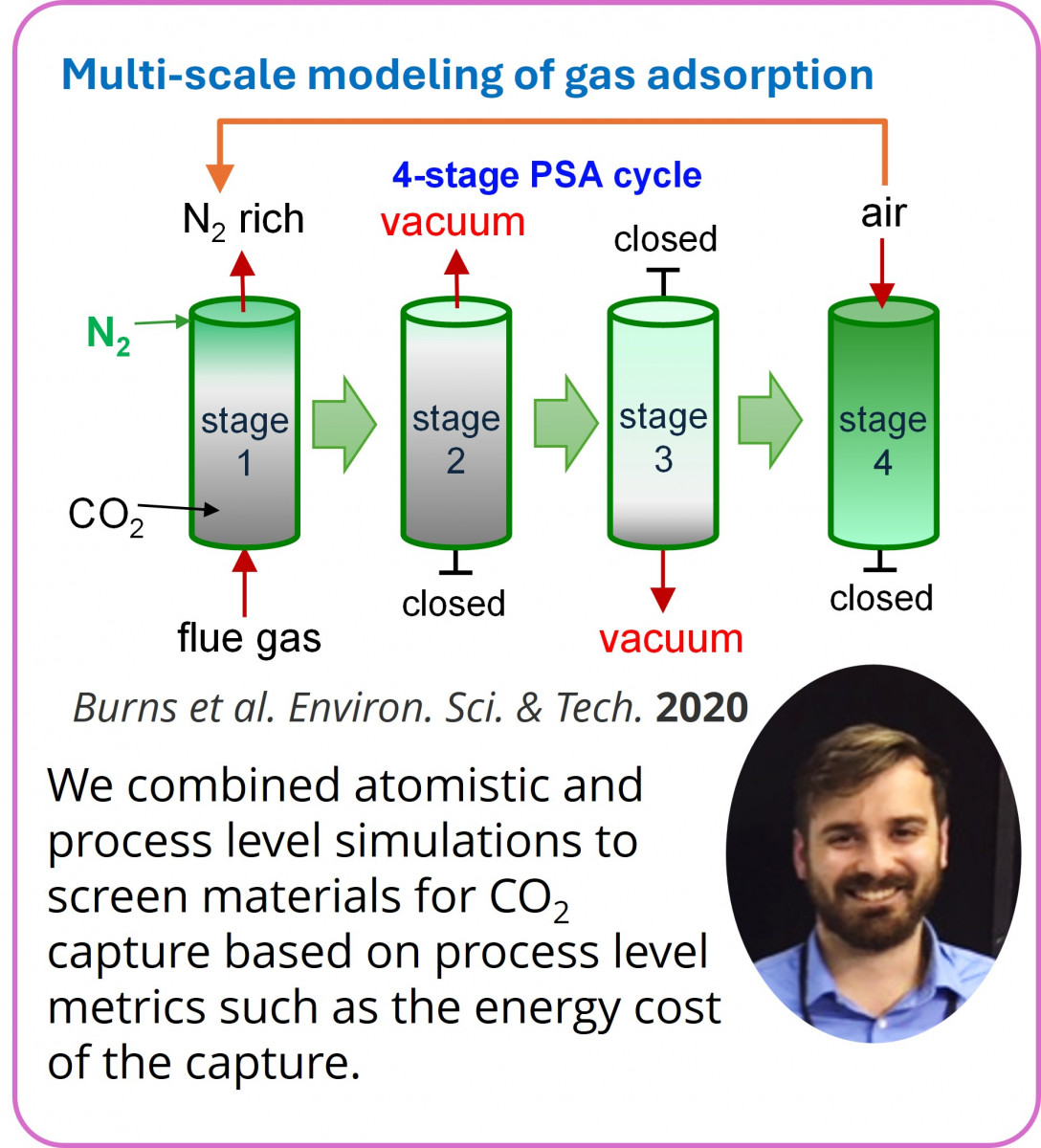Links to our:
Summary of Research
Our principal research interests lie in the fields of computational chemistry and machine learning applied to chemistry. Computer simulations and machine learning models benefit many areas of science and engineering. Chemistry is no different, and our group often performs atomistic level simulations or develops machine learning models to predict properties before time and effort is spent in the lab to make new materials or molecules. We both apply and develop state-of-the art atomistic simulation and machine learning models to study complex chemical systems of technological importance. Our simulations often push the limits of current computing technologies, and as a result, our group is also heavily involved in high-performance scientific computing and advanced simulation methods. In this respect, we have built and are maintaining a high performance computing cluster composed of more than 2000 cpu cores and GPUs.
For Students: Researchers in our group will be simultaneously exposed to the process of developing new simulation methods and to the practical application of both novel and established computational molecular modeling techniques. The former is important because molecular modeling software is becoming more user-friendly and accessible to the non-expert. Students involved in this research program will also be exposed to the general skills of computer modeling, advanced numerical algorithms, data analysis/handling, software development and high performance technical computing. Since we maintain our own computing facility, there are also opportunities to gain hands-on experience with high-performance computing, parallel computing, and systems administration.
